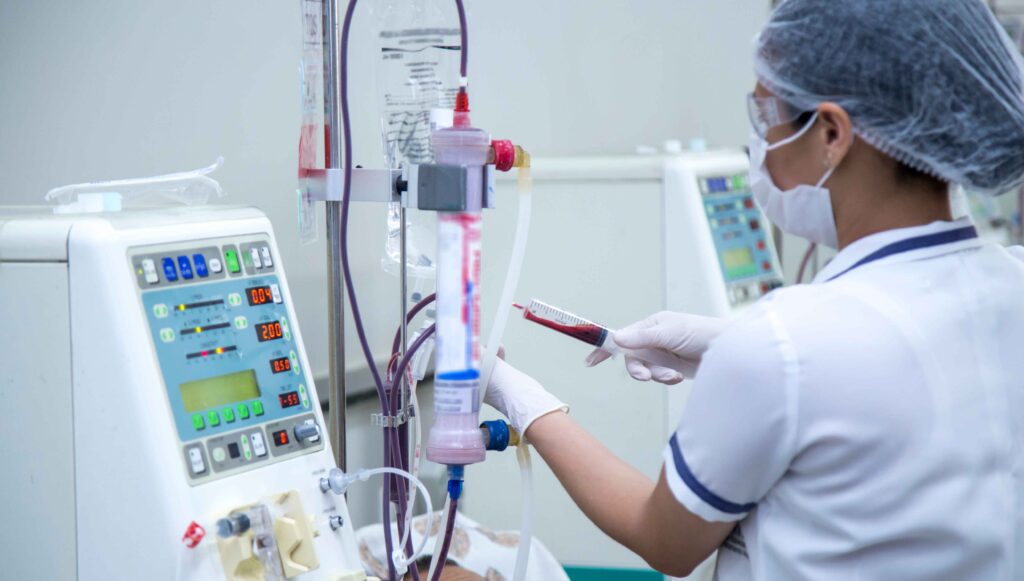If you are looking for chances of kidney recovery after dialysis. Then recovery is uncommon in end-stage renal disease where damage is irreversible, taking place in about 1-4% of patients, and even this could be temporary. Recovery depends on the cause of kidney failure, severity and duration of kidney disease, overall health and age of the patient.
Recovery From Dialysis: Maintaining a Healthy
Dialysis is one of the most important treatments for chronic kidney disease and is a lifeline for many that undergo the process to cleanse the blood of waste products and excess water. This life-saving one-off treatment can also restore the energy and stability of a patient, and support them to live a healthier and more productive life.
Managing Dialysis Fatigue With Movement
Fatigue is the most common side effect cited by guests after treatment, and it’s true that guests should rest following their treatment while not being inactive.While many guests may feel as if they have to sleep after a treatment session, there are low energy options that can revitalize their progress such as going for a walk, doing some light stretching, or even getting into their favourite hobby.
Establishing a Post-Dialysis Routine
The following are some suggestions for having a post-dialysis routine:
Meal Timing: Obtaining good nutrition in the first few hours post-dialysis can help you get back energy. Attempt to eat a balanced diet that contains lean protein, healthy carbohydrates, and vegetables with a good nutrient density.
Hydration: Even though for some dialysis guests fluid intake needs to be closely monitored, it is still very important to drink as much fluid as reasonable based on the amount of fluids your healthcare provider states is adequate.
Be Aware of Side Effects
Most patients having dialysis have no side effects but it is sensible to be aware of what they could be:
Muscle Cramping: The patient undergoing dialysis may develop a muscle cramp if they have lost too much excess fluid from the body during the process. Rubbing or stretching the muscle or ensuring proper hydration of the patient can reduce the risk of muscle cramping.
Hypotension: Dizziness or lightheadedness caused by abnormally low blood pressure can occur during therapy or upon arising and getting out of bed. Patients get dizzy or feel lightheaded.
Infection: Patient must inform the patient to keep his/her access site clean and go see his/her health care provider when he/she is having any redness and swelling or pain at the access site.
Long term wellness planning
Recovery is not a one-time thing after the initial few hours following dialysis; rather, it is a matter of holding on to an attitude that favors continued wellness. This includes going to all of the prescribed dialysis sessions, adhering to medical guidance, and altering life styles. Dialysis visitors must always maintain lines of communication with medical personnel and report unusual symptoms immediately.
Conclusion
Having a good routine of health after dialysis not only lessens fatigue and distress but also solidifies fortitude and stability for being more active.”Chances of kidney recovery after dialysis” dialysis recovery isn’t about rest alone about making balance, hearing the body, and being in sync with healthcare professionals to guarantee continued wellness.
Frequently Asked Questions
Q. What is the life expectancy of a person on kidney dialysis?
The life expectancy of an individual on kidney dialysis is 5 to 10 years, though the same depends heavily upon age, overall health status.
Q. Can dialysis make you nauseous?
Yes, dialysis may be a cause of nausea due to a variety of reasons like the rapid removal of fluids or substances like urea (leading to Dialysis Disequilibrium Syndrome).
Q. Can kidneys fully recover after dialysis?
No, kidneys usually do not become normal following the initiation of dialysis, as dialysis is a therapy for kidney failure and not a cure.
Q. Can kidneys still fail on dialysis?
Dialysis can still lead to a worsening kidney function as dialysis is a supportive treatment which only replaces a portion of the kidney function and is not a cure for kidney failure.
Q. Do kidneys recover quickly?
No, kidneys do not always recover quickly; there is a wide variation in recovery of kidney issues.



